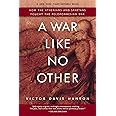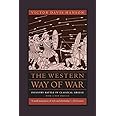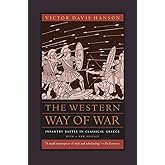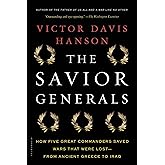
Amazon Prime Free Trial
FREE Delivery is available to Prime members. To join, select "Try Amazon Prime and start saving today with FREE Delivery" below the Add to Cart button and confirm your Prime free trial.
Amazon Prime members enjoy:- Cardmembers earn 5% Back at Amazon.com with a Prime Credit Card.
- Unlimited FREE Prime delivery
- Streaming of thousands of movies and TV shows with limited ads on Prime Video.
- A Kindle book to borrow for free each month - with no due dates
- Listen to over 2 million songs and hundreds of playlists
Important: Your credit card will NOT be charged when you start your free trial or if you cancel during the trial period. If you're happy with Amazon Prime, do nothing. At the end of the free trial, your membership will automatically upgrade to a monthly membership.
Buy new:
$31.95$31.95
Ships from: Amazon.com Sold by: Amazon.com
Save with Used - Very Good
$25.16$25.16
Ships from: Amazon Sold by: THE BOOK SLED -- Fastest shipping!

Download the free Kindle app and start reading Kindle books instantly on your smartphone, tablet, or computer - no Kindle device required.
Read instantly on your browser with Kindle for Web.
Using your mobile phone camera - scan the code below and download the Kindle app.

Follow the author
OK
Warfare and Agriculture in Classical Greece, Revised edition (Biblioteca Di Studi Antichi) Paperback – October 20, 1998
Purchase options and add-ons
In the past, scholars have assumed that the agricultural infrastructure of ancient society was often ruined by attack, as, for example, Athens was relegated to poverty in the aftermath of the Persian and later Peloponnesian invasions. Hanson's study shows, however, that in reality attacks on agriculture rarely resulted in famines or permanent agrarian depression. Trees and vines are hard to destroy, and grainfields are only briefly vulnerable to torching. In addition, ancient armies were rather inefficient systematic ravagers and instead used other tactics, such as occupying their enemies' farms to incite infantry battle. Warfare and Agriculture in Classical Greece suggests that for all ancient societies, rural depression and desolation came about from more subtle phenomena―taxes, changes in political and social structure, and new cultural values―rather than from destructive warfare.
- Print length300 pages
- LanguageEnglish
- PublisherUniversity of California Press
- Publication dateOctober 20, 1998
- Dimensions6 x 0.75 x 9 inches
- ISBN-100520215966
- ISBN-13978-0520215962
Book recommendations, author interviews, editors' picks, and more. Read it now.
Frequently bought together

Customers who viewed this item also viewed
Editorial Reviews
From the Inside Flap
"Warfare and Agriculture in Classical Greece presents a closely argued and thoroughly supported critique of an entire tendency in classical scholarship to think uncritically about agriculture. . . . Hanson's success in this results in an admirably short work that is full of interest, not just for classical scholars but also for military, agriculture, and environmental historians."--Colin Duncan, Queen's University, Ontario
From the Back Cover
"Warfare and Agriculture in Classical Greece presents a closely argued and thoroughly supported critique of an entire tendency in classical scholarship to think uncritically about agriculture. . . . Hanson's success in this results in an admirably short work that is full of interest, not just for classical scholars but also for military, agriculture, and environmental historians."―Colin Duncan, Queen's University, Ontario
About the Author
Product details
- Publisher : University of California Press; First Edition (October 20, 1998)
- Language : English
- Paperback : 300 pages
- ISBN-10 : 0520215966
- ISBN-13 : 978-0520215962
- Item Weight : 14.4 ounces
- Dimensions : 6 x 0.75 x 9 inches
- Best Sellers Rank: #356,791 in Books (See Top 100 in Books)
- #400 in Ancient Greek History (Books)
- #452 in European Politics Books
- #1,275 in History & Theory of Politics
- Customer Reviews:
About the author

Victor Davis Hanson is a senior fellow in military history and classics at the Hoover Institution at Stanford University and a professor emeritus of classics at California State University, Fresno. He is the author of over two dozen books, including The Second World Wars, The Dying Citizen, and The End of Everything. He lives in Selma, California.
Customer reviews
- 5 star4 star3 star2 star1 star5 star72%17%11%0%0%72%
- 5 star4 star3 star2 star1 star4 star72%17%11%0%0%17%
- 5 star4 star3 star2 star1 star3 star72%17%11%0%0%11%
- 5 star4 star3 star2 star1 star2 star72%17%11%0%0%0%
- 5 star4 star3 star2 star1 star1 star72%17%11%0%0%0%
Customer Reviews, including Product Star Ratings help customers to learn more about the product and decide whether it is the right product for them.
To calculate the overall star rating and percentage breakdown by star, we don’t use a simple average. Instead, our system considers things like how recent a review is and if the reviewer bought the item on Amazon. It also analyzed reviews to verify trustworthiness.
Learn more how customers reviews work on AmazonTop reviews from the United States
There was a problem filtering reviews right now. Please try again later.
- Reviewed in the United States on July 3, 2011This monograph covers one of those little considered subjects that, in fact, has a great deal to do with the waging of war, particularly war in ancient times. Raised on a farm, Hanson has a lot to offer on this subject. Not only does he understand just how hardy orchards, vineyards, and grain fields can be, he ran his own research projects, cutting down fruit trees, pulling up the stumps, even burning out the stumps only to have new shoots appear the following year. Vineyards don't burn like they did in "A Walk in the Clouds." Grain fields are susceptible to burning only within a small window of time. Green grain doesn't burn easily. And time--the time it takes to do these things is not conducive to ravaging and rampaging across the land. It's hard, time-consuming work.
I learned so much in this monograph. In fact, I would recommend any work by Hanson. He's direct and pulls things together so that his histories are strong and easy to follow. His is not elementary work; it's important work.
- Reviewed in the United States on May 14, 2019The invading army had to be feed. They lived off the land. This alone caused damage and depletion of crops. Whether the invader destroyed crops as a strategy or necessity the invaded were deprived of their food supply to some extent. I read this book because of my interest in Victor Davis Hanson. This was his first book written for his PHD. I have also read Mexifornia and plan to read the remainder in chronological order.
- Reviewed in the United States on January 11, 2001The author uses his concrete experience as a farmer in the San Fernando Valley to develop a fine point about the "low intensity" character of Classical Greek warfare. He argues that, the Greek city-states waging warfare through part-time citzen militias, the war strategy of all Greek polities centered on the idea of forcing a pitched battle in order not to keep citzens away too long for harvesting at home. The means used to force such a battle being to disturb the enemy's harvest, which, however, given the low technology tools avaliable and the resilience of the crop-species - specially olive trees - could never amount to permanent damage. Therefore the general low-intensity, boarding game character of much of Classical Greek military history. A fine argued, important book, specially for the firm grasp of the concrete realities at play.
- Reviewed in the United States on November 15, 2017This covers a critical aspect of ancient history in a new way. It is also excellently written!
- Reviewed in the United States on August 23, 1999Warfare and Agriculture is a scholarly, yet very readable, analysis of the effects of war on agriculture and rural life in classical Greece. Drawing heavily on contemporary sources, Hanson clearly illustrates the inextricable connection between war and agriculture in the Greek world. With the notable exception of Sparta, Greek infantrymen typically were farmers themselves who were often torn between their role as ravagers of agriculture in enemy territory, and the need to tend to their own crops.
Hanson's main premise is that many previous analyses of agricultural devastation in classical Greece have overstated the severity of its effects. He points out the ravaging was usually a means to incite battle with enemy infantry rather than an end in itself, and argues convincingly that the ravaging often associated with the seasonal cycle of warfare, while certainly contributing to hardship among the invaded population, was far from complete and had relatively short-term effects. Drawing on his first-hand experience as a farmer, Hanson illustrates some of the practical difficulties with destroying the olive trees, vines, and grains that formed the staples of Greek agriculture. In the course of his analysis, he brings to life the Greek countryside and its relationship to the urban center of the polis.
Although Warfare and Agriculture will be of interest to any reader interested in the classical world, it is probably of greatest interest to readers with some familiarity with Greek history. The extensive references to contemporary and modern sources, including many recent sources cited in the Updated Commentary to this revised edition, guide the interested reader to a wealth of additional information on the subject.















